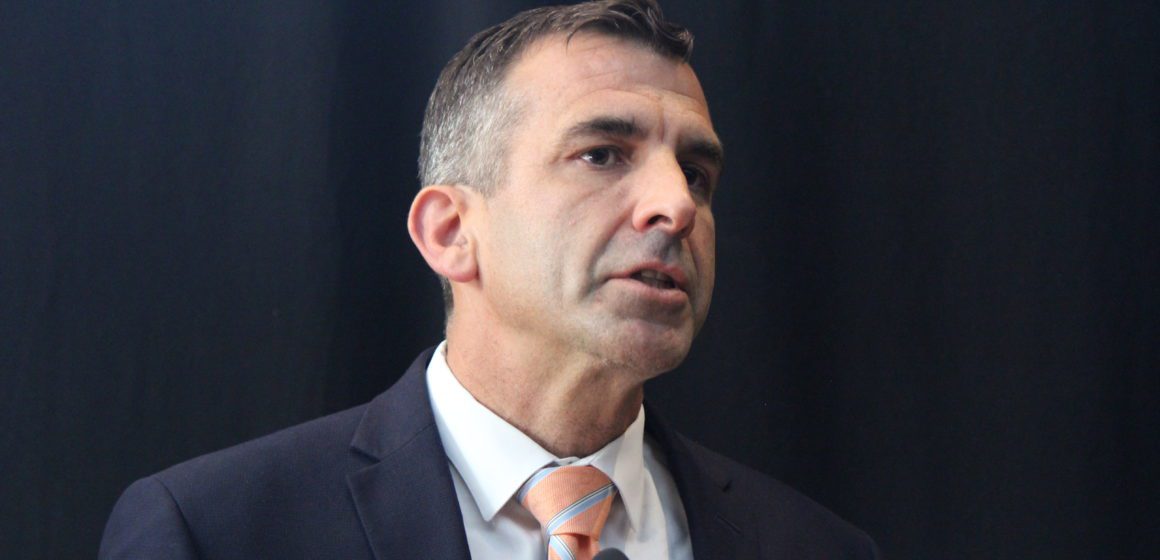A citizen-led city board has dismissed a complaint that accuses San Jose Mayor Sam Liccardo of breaking campaign rules through a political action committee he formed.
The Board of Fair Campaign and Political Practices voted unanimously last month to close a complaint alleging Liccardo violated state and local rules as a sitting elected official by opening and fundraising roughly $500,000 for a committee to support candidates running this election cycle—including Councilmember Matt Mahan, who’s running to replace Liccardo. The complaint, which prompted a wave of reaction from local candidates and politicos, also claimed Liccardo failed to disclose the hundreds of thousands of dollars in contributions as required and contributions exceeded local donation limits.
The board, made up of five San Jose citizens, is tasked with monitoring local campaign and ethics rules and reviewing all complaints of potential violations.
Jim Reed, Liccardo’s chief of staff who manages “Common Good Silicon Valley, sponsored by Solutions Silicon Valley,” said the board’s decision is to be expected and the political action committee (PAC) has followed state and local rules closely.
“Just like we said from the very beginning, anybody who understands election law knew the complaint was without basis,” Reed told San José Spotlight. “Sadly, these are the kinds of games that status quo special interests play when they’re scared and they’re scared to death of Matt Mahan.”
Mahan is facing off against Santa Clara County Supervisor Cindy Chavez for the top seat at San Jose City Hall. The race has become contested—and expensive—as campaigns and PACs are doling out more than $2.4 million to boost the candidates’ chances.
Outside law firm Hanson Bridgett, contracted by the board, investigated the allegations and found three out of four claims in the complaint lacked evidence and do not constitute a violation of city’s ethics and open government rules. Investigators also launched an investigation into a claim of Liccardo failing to disclose the contributions and also found no violations.
Investigators recommended the board dismiss the allegations.
“Through no fault of the mayor, the reports were not timely posted to the city’s website so the public, including the complainant, could not have known until after the complaint was filed that the mayor had properly reported the solicitations,” the investigation report reads.
Board Chair Adrian Gonzales said the board’s decision was based on the investigation.
“The investigation found that the mayor appropriately complied with reporting requirements,” Gonzales told San José Spotlight.
Judy Pipkin, who filed the complaint in May, said she’s not convinced with the board’s decision.
“I felt like I was being dismissed and not really being listened to (at the meeting),” Pipkin told San José Spotlight, adding she is planning to file another complaint with the state.
No violations found
Liccardo, who terms out this year, formed a PAC last November to influence the 2022 election. The mayor helped the PAC raise roughly $500,000, but stepped away from the committee in March. The PAC has spent roughly $730,000 this year boosting several campaigns—the majority of which went to support Mahan.
At the heart of the complaint is the question of whether Liccardo, a sitting elected official who is not running in the election, is considered a candidate and must follow certain restrictions including local contribution limits.
State law says all officeholders—including Liccardo—are candidates until they leave office, according to a letter from the state’s Fair Political Practices Commission. The PAC’s legal team wrote a letter seeking advice from the FPPC, which regulates campaign financing, conflicts of interest, lobbying and government ethics, about Liccardo’s role with the PAC in January.
The letter offered the FPPC’s interpretation of the law, but did not provide a conclusive determination whether a state law had been violated. It also said San Jose would have to decide whether the mayor’s action broke any local rules.
The PAC and city attorney Nora Frimann told San José Spotlight previously the municipal code doesn’t prohibit Liccardo from opening and personally fundraising for a PAC—even ahead of the fundraising period. The mayor is also not a candidate, and he is not subject to the contribution limits in San Jose, Frimann said.
Steven Miller, an investigator with Hanson Bridgett, concurred with the city attorney. San Jose’s local campaign rules don’t consider Liccardo as a candidate—and contributions to the Common Good PAC are legal because they don’t directly benefit Liccardo, Miller wrote in his August report.
“We do not find sufficient cause to investigate three of the four allegations in the complaint because the allegations, even if true, would not amount to a violation of Title 12,” Miller said in his report. Title 12 is San Jose’s ethics and transparency provisions.
Contact Tran Nguyen at [email protected] or follow @nguyenntrann on Twitter.



Leave a Reply
You must be logged in to post a comment.